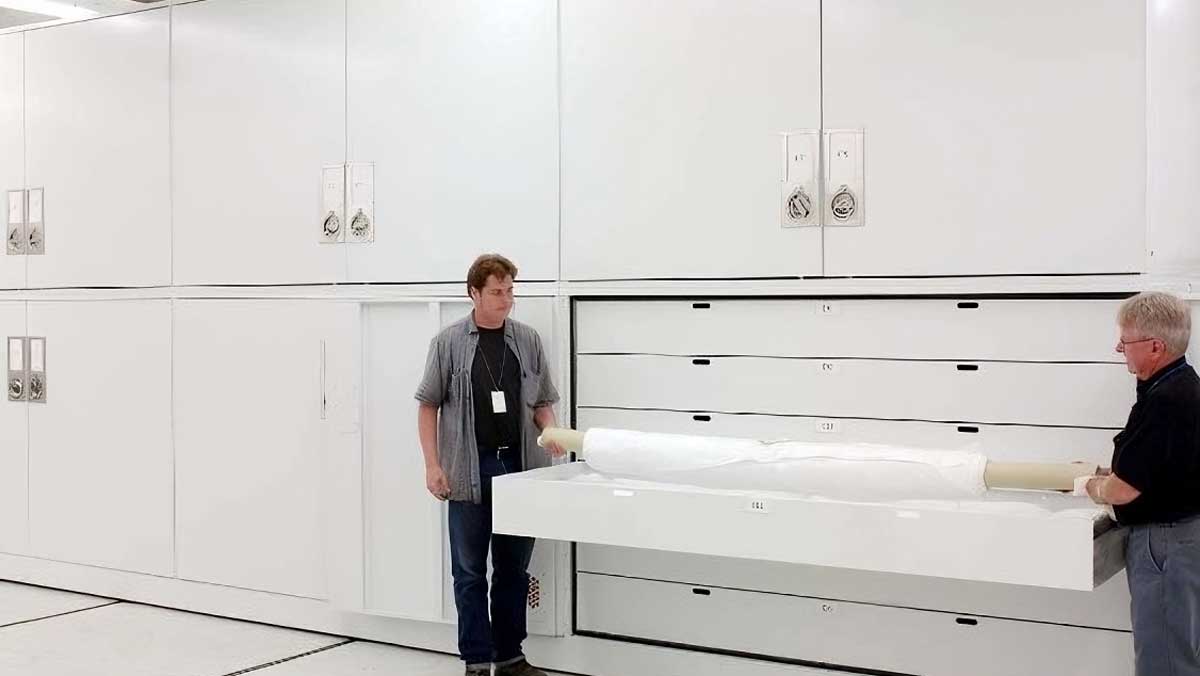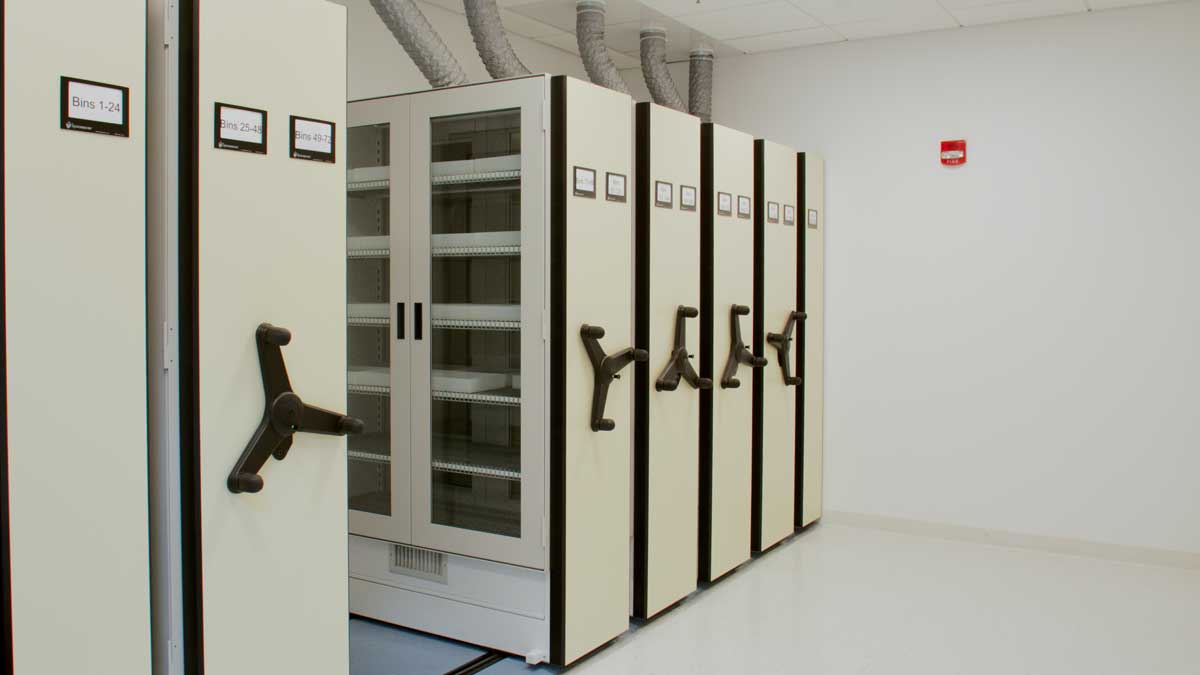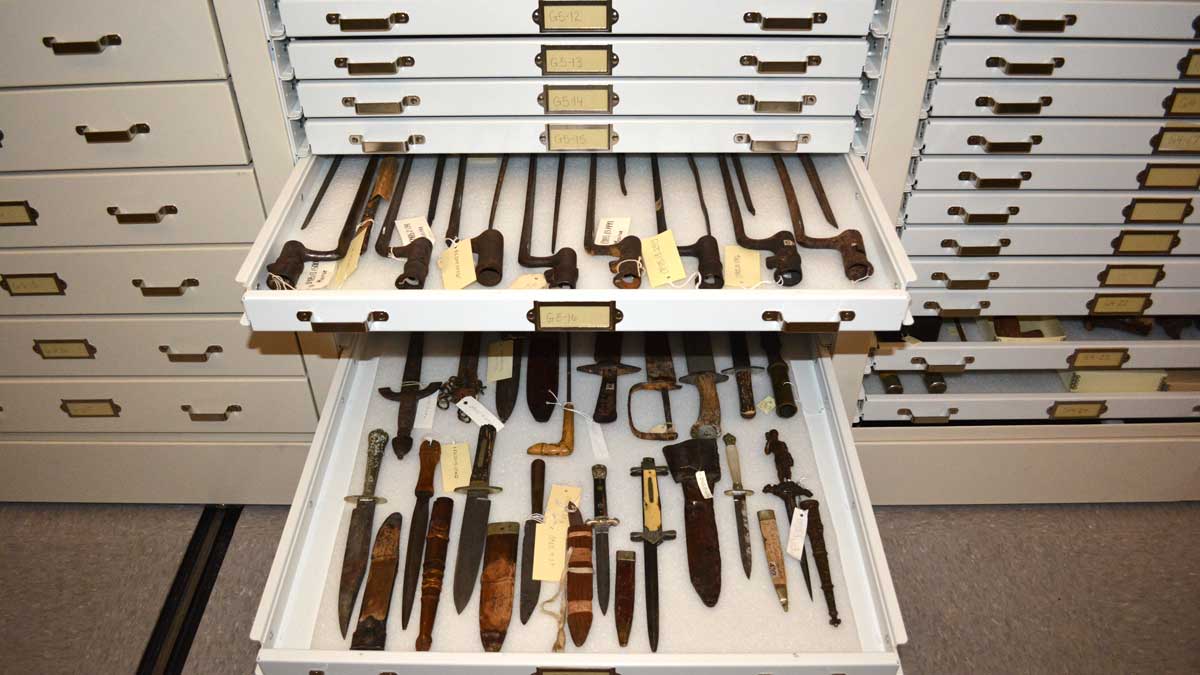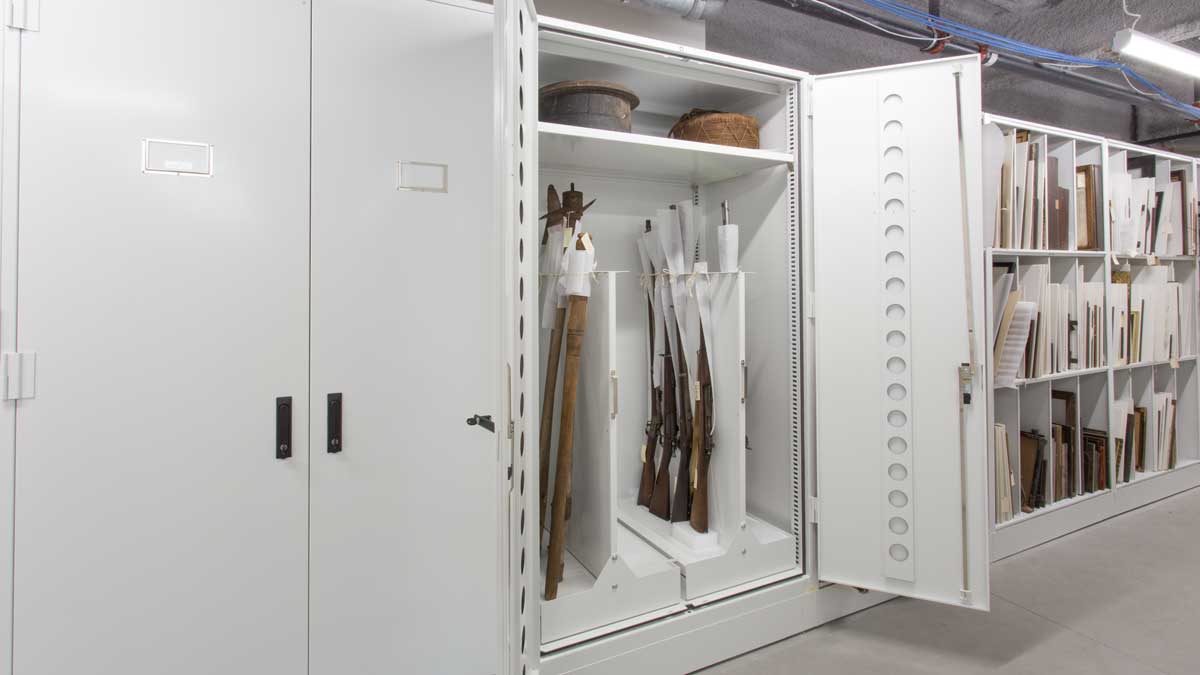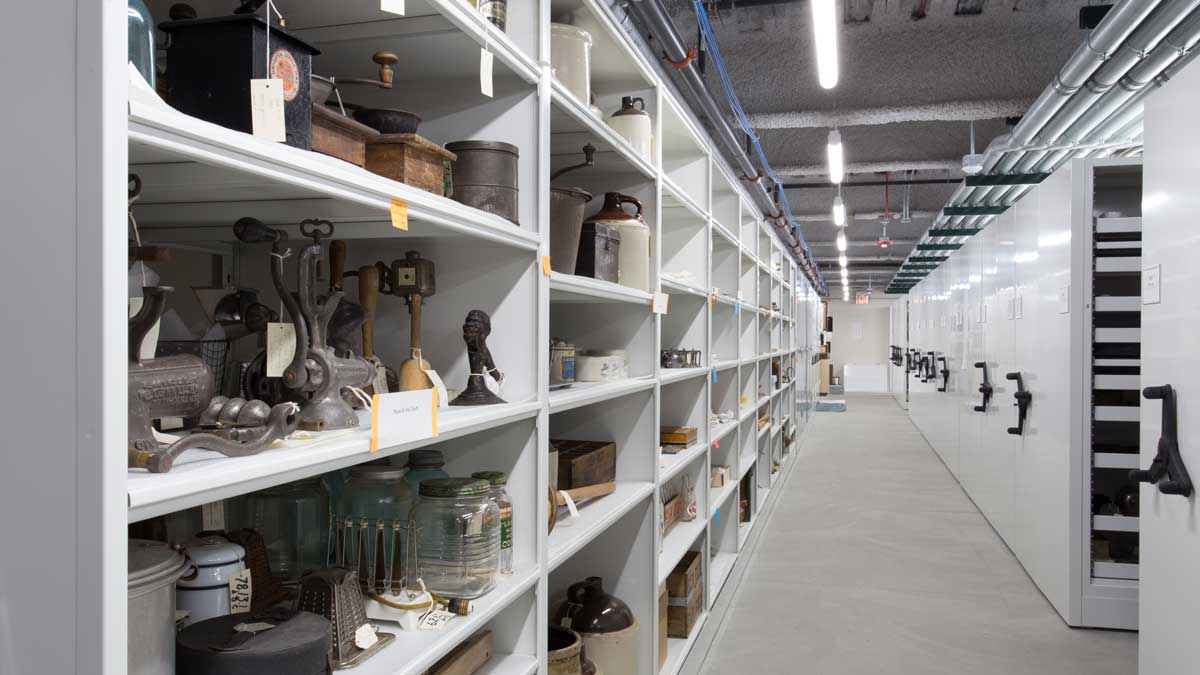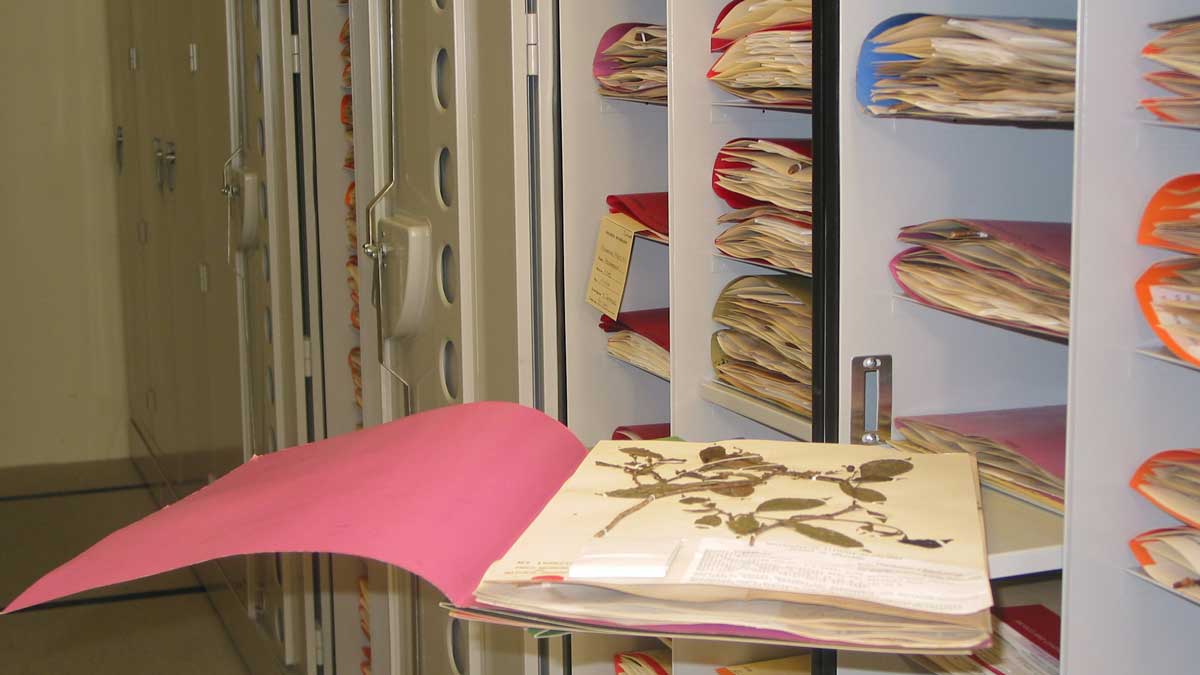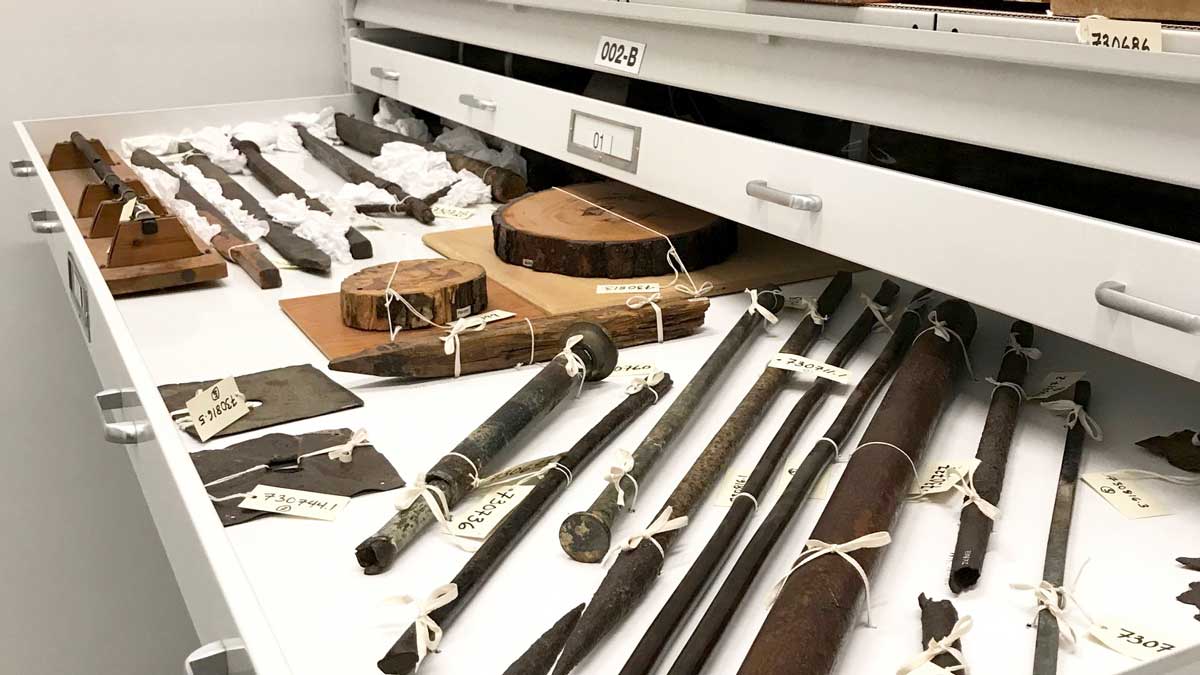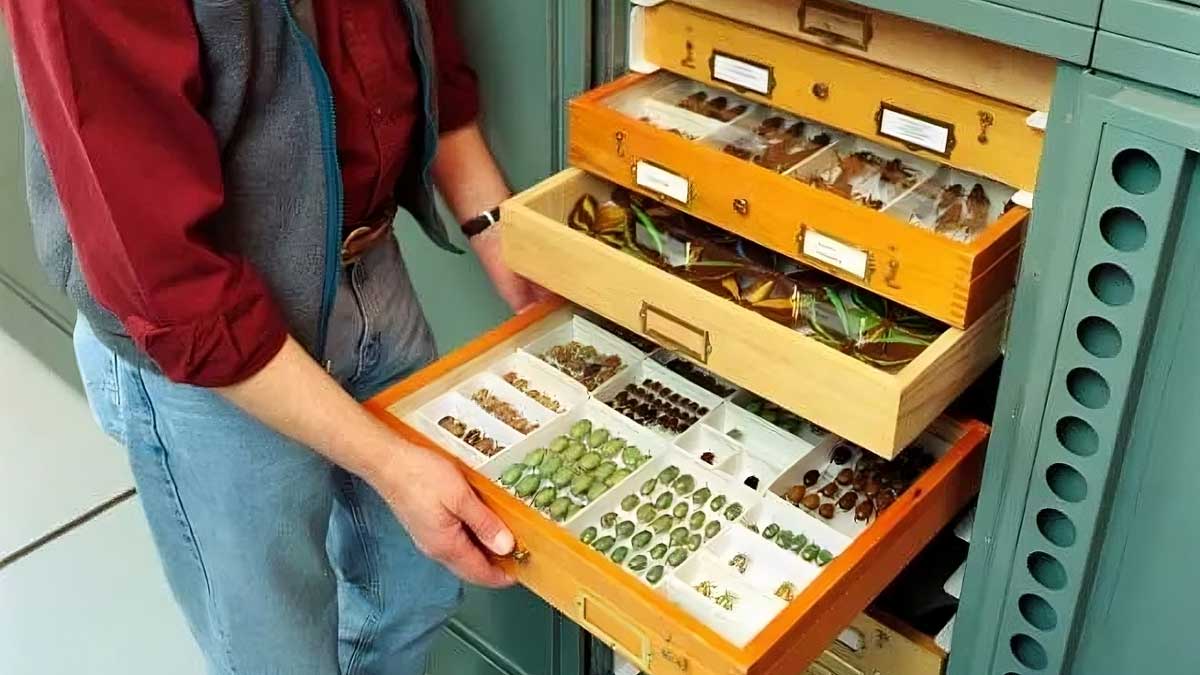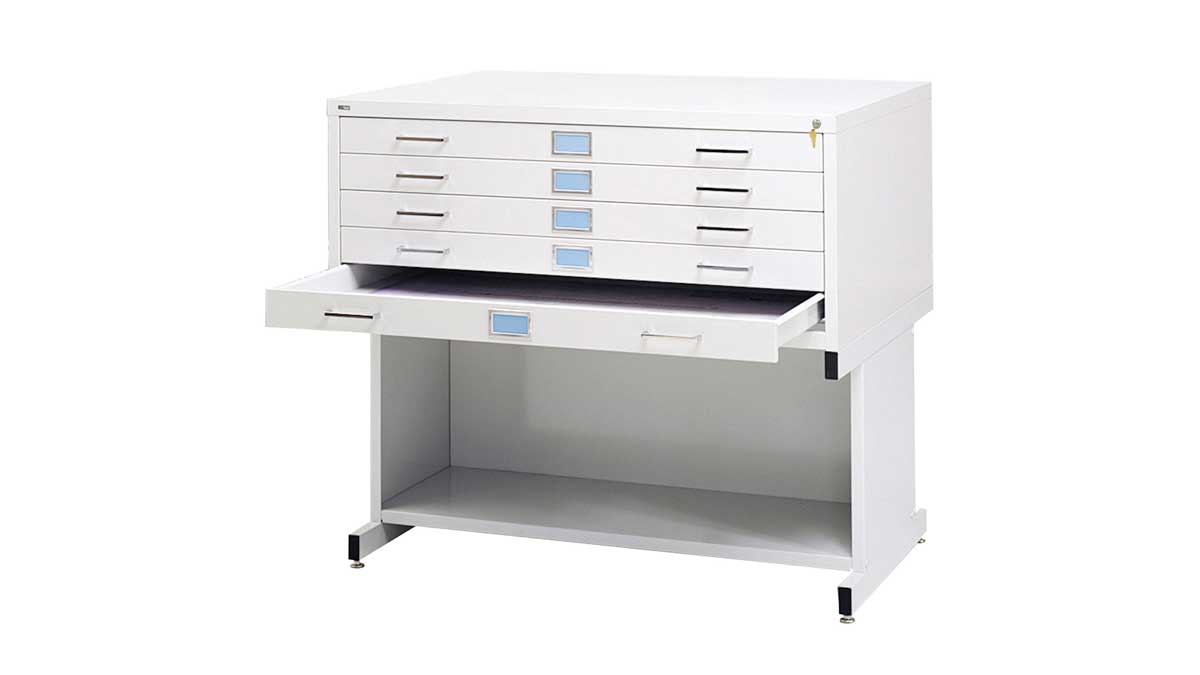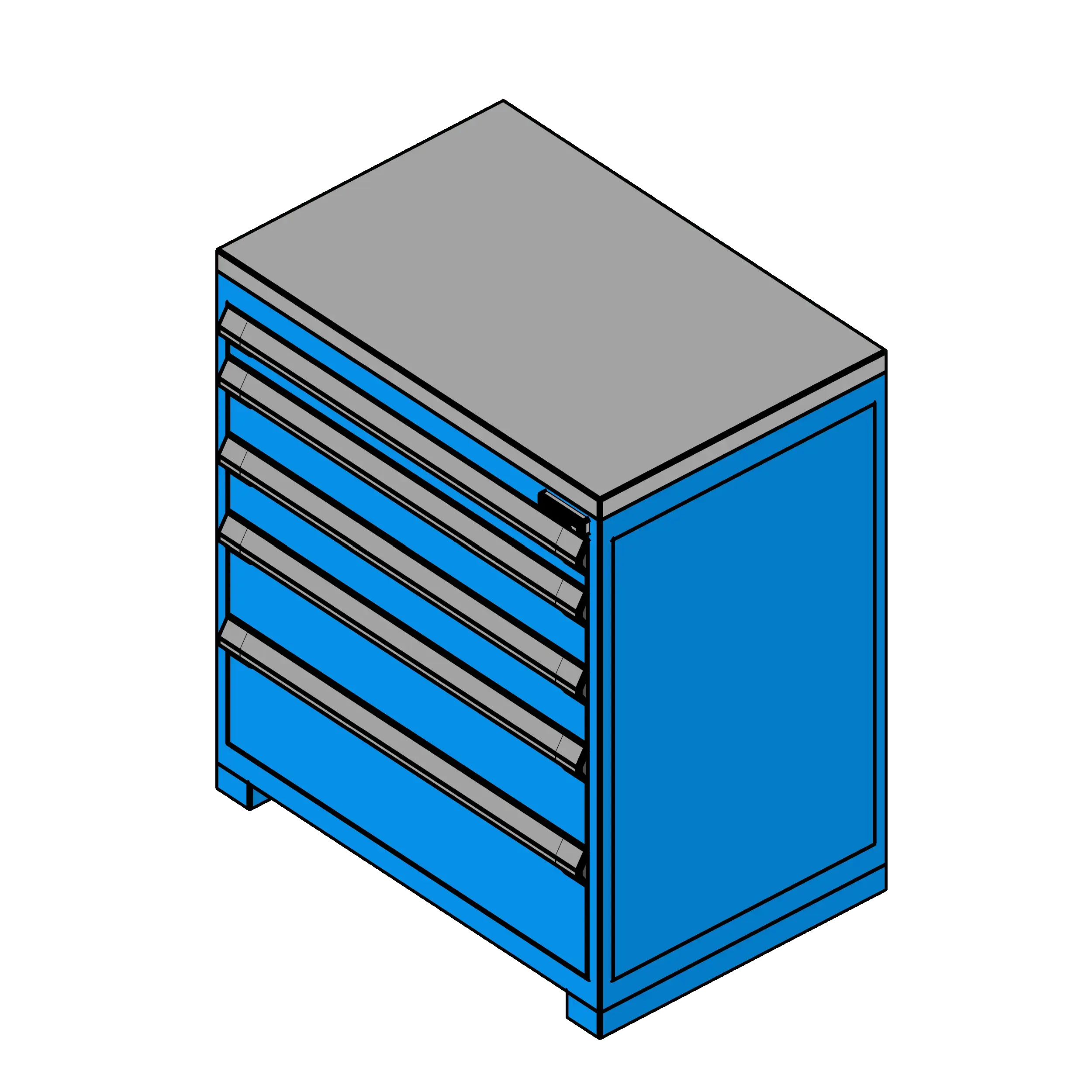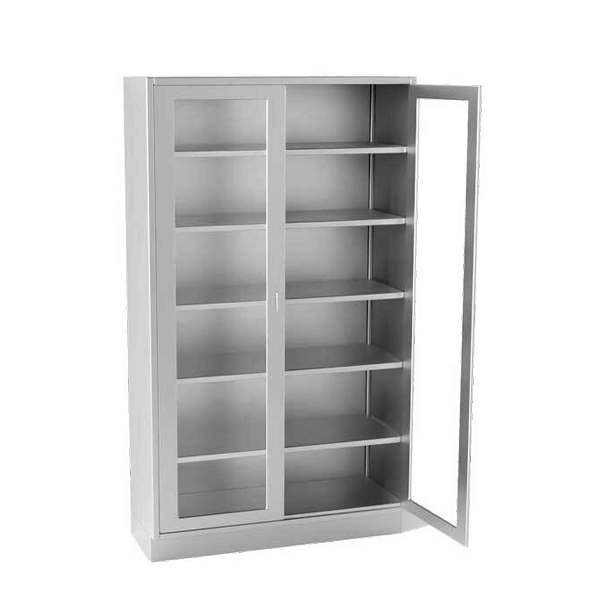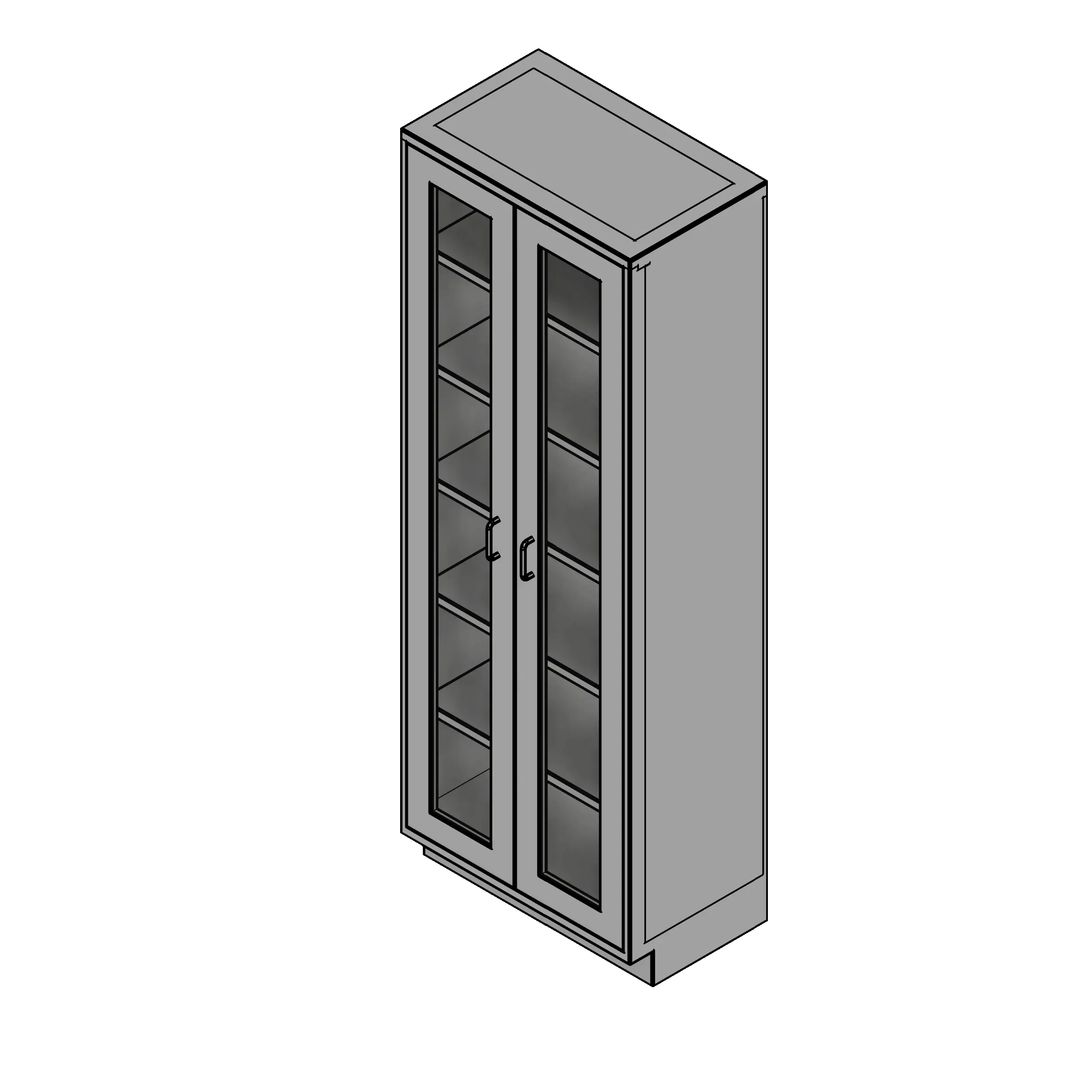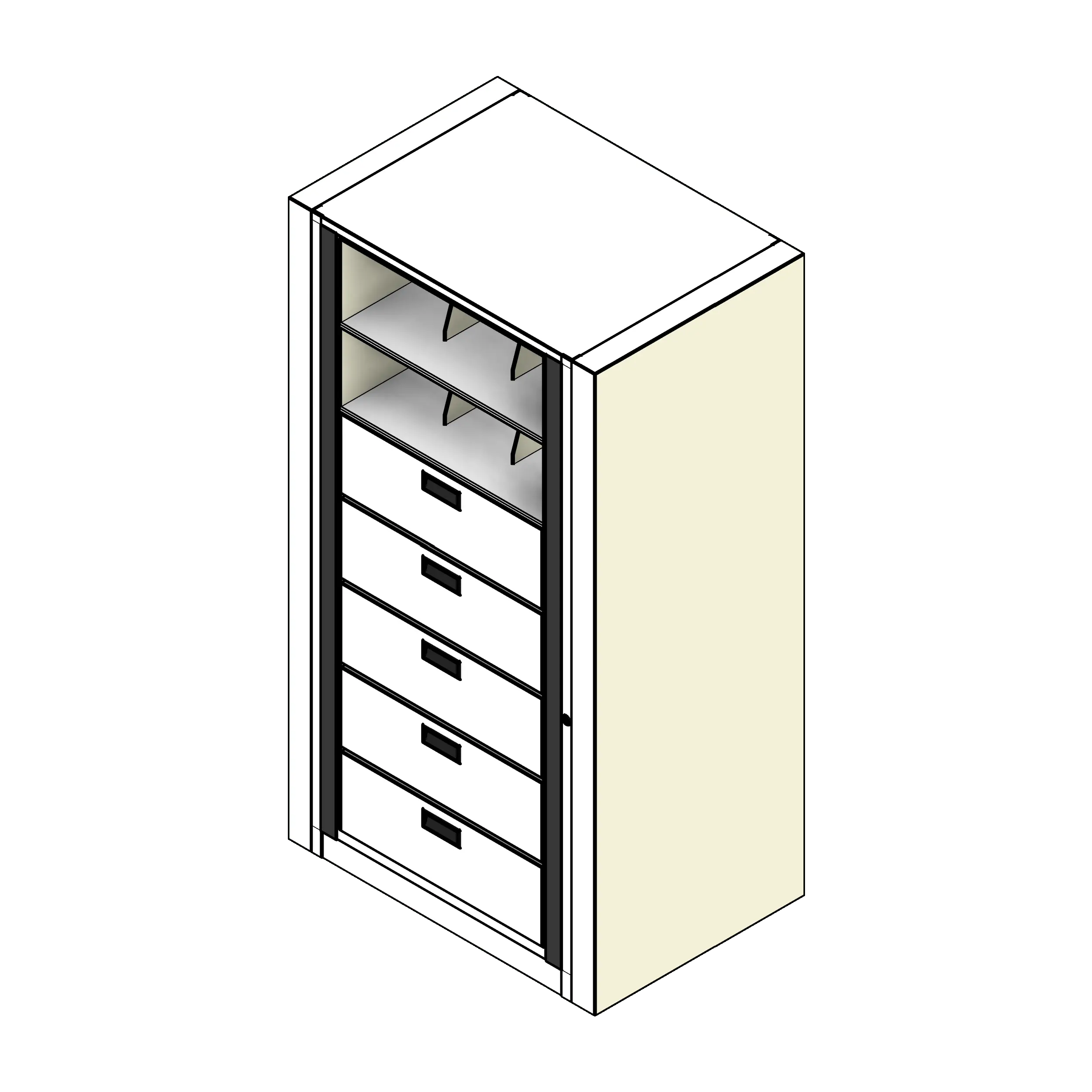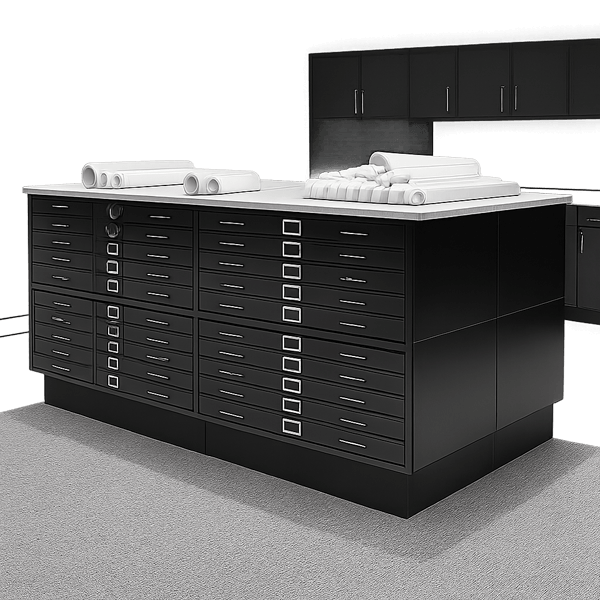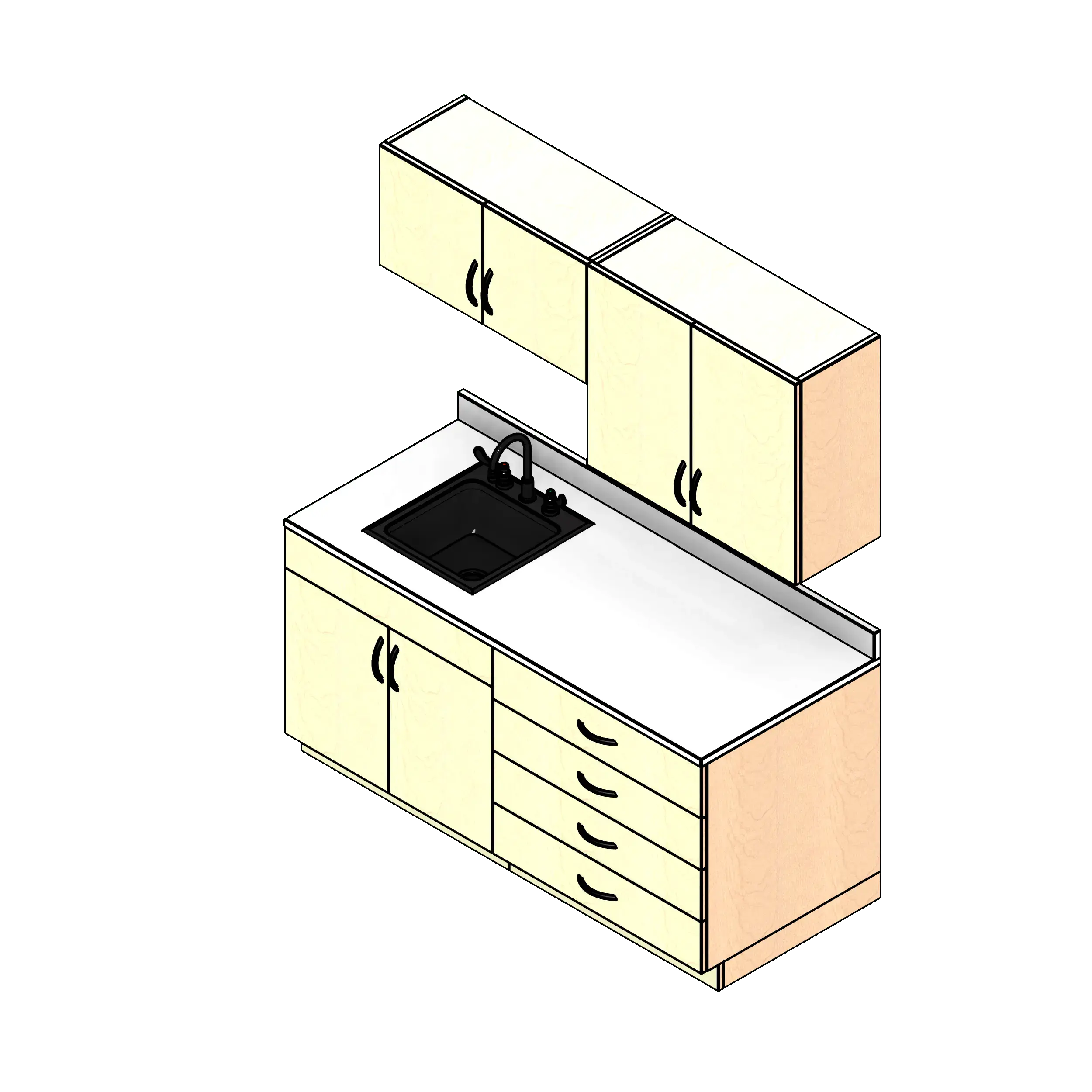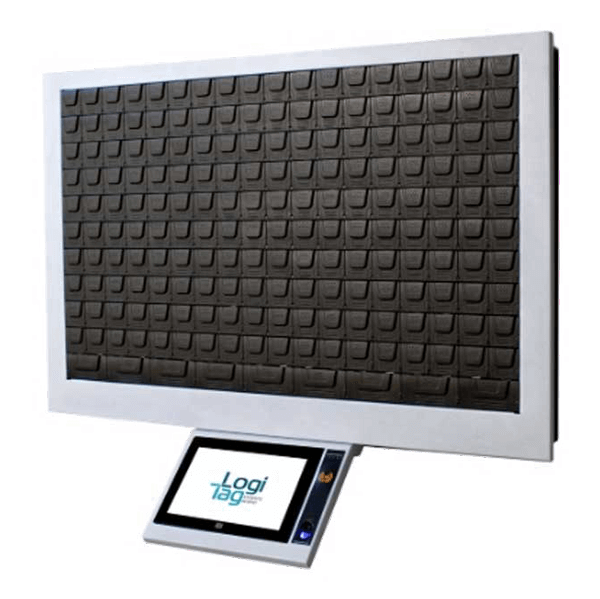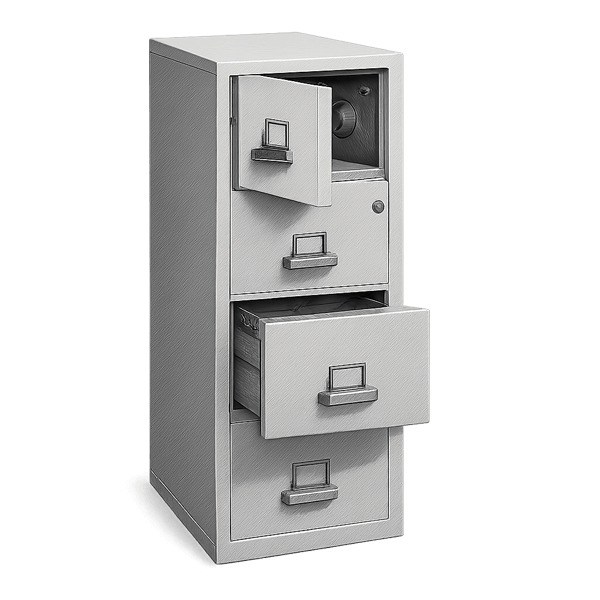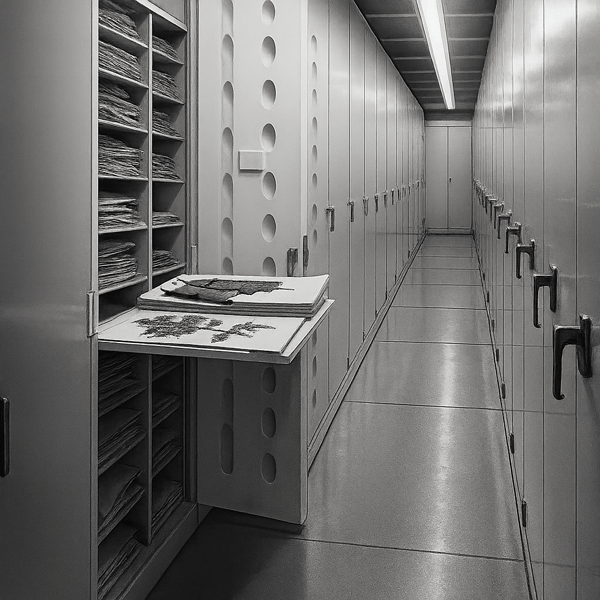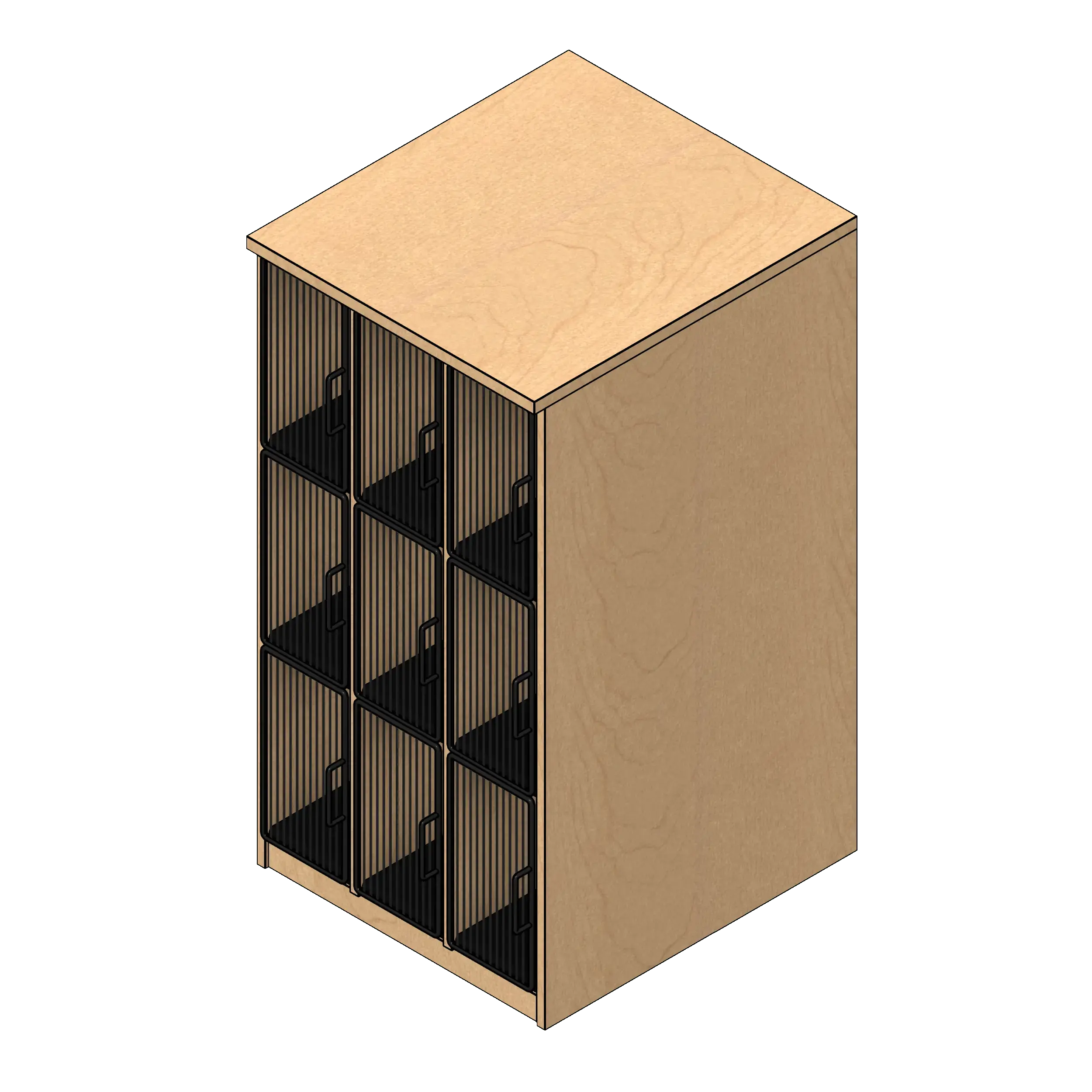Museum Cabinets for Preservation, Access & Growth
Museum cabinets protect collections from light, dust, pests, and humidity while maximizing capacity and day-to-day access. From flat files to sealed specimen drawers, our museum-grade cabinets are built with inert materials to support conservation best practices in art museums, universities, and government institutions. Get design help, budgeting guidance, and coordinated install from Southwest Solutions Group. Need BIM resources? Download Revit files or request a consultation to plan the right mix of flat files, glass-front visible storage, and specialty cabinets for your collection.
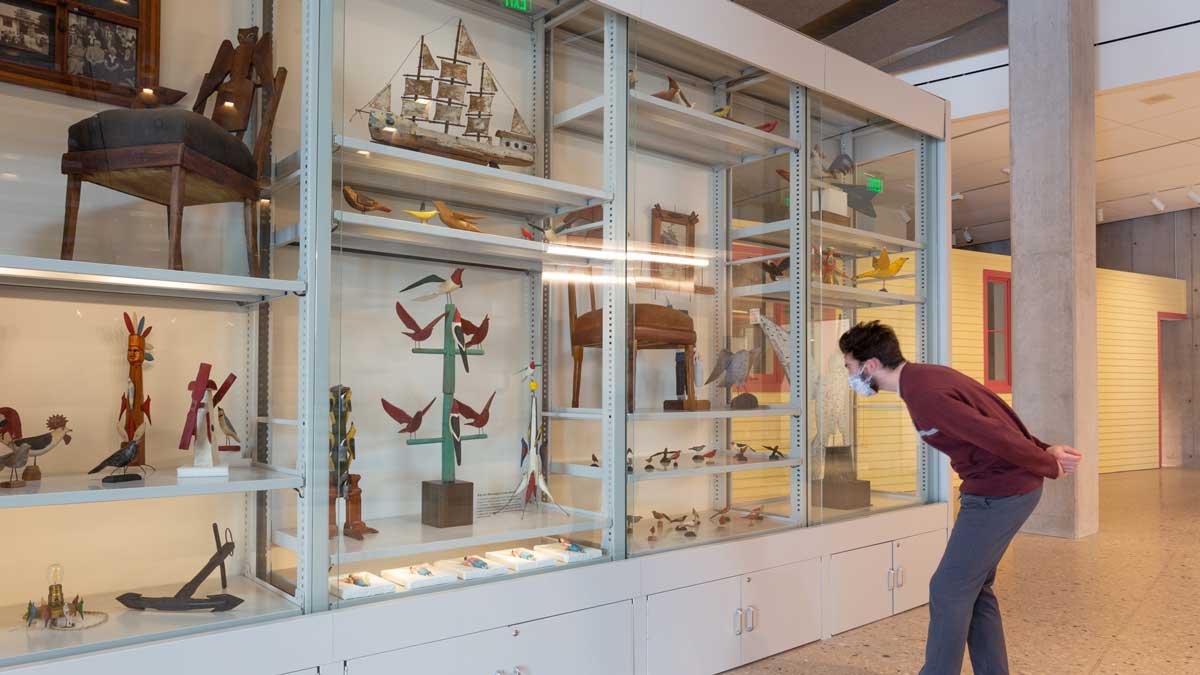
Museum Display Cabinet To Protect Collections
Museum storage cabinets shield artifacts from common threats like light exposure, dust, pollutants, and pest infestation. A museum display cabinet uses sealed enclosures and stable materials that won’t off-gas or harm objects over time. Available in flat file, upright, or glass-front styles, they create safe environments for everything from paper and fabric to natural history specimens.
Benefits include:
- Sealed interiors with light- and pest-resistant design
- Inert materials for long-term preservation
- Multiple cabinet styles for flat, vertical, or hanging items
- Optional climate control features
- Designed to meet museum-grade standards
Airtight Cabinet Solutions for Any Collection Type
Cabinet types vary to meet the needs of specific collections. Flat file cabinets are ideal for maps, prints, and textiles. Natural history items like rocks, insects, or dried plants require specialty cabinet interiors with reinforced shelves or sealed trays. Some museums opt for glass-top cabinets to display fragile items without direct handling, while others specify an airtight cabinet with sealed gaskets for added protection.
Museum Cabinets for Storage:
- Flat file drawers for large paper and textiles
- Insect trays and specimen drawers
- Rock storage with reinforced supports
- Glass-front or glass-top viewing options
- Adjustable shelving for multi-type collections
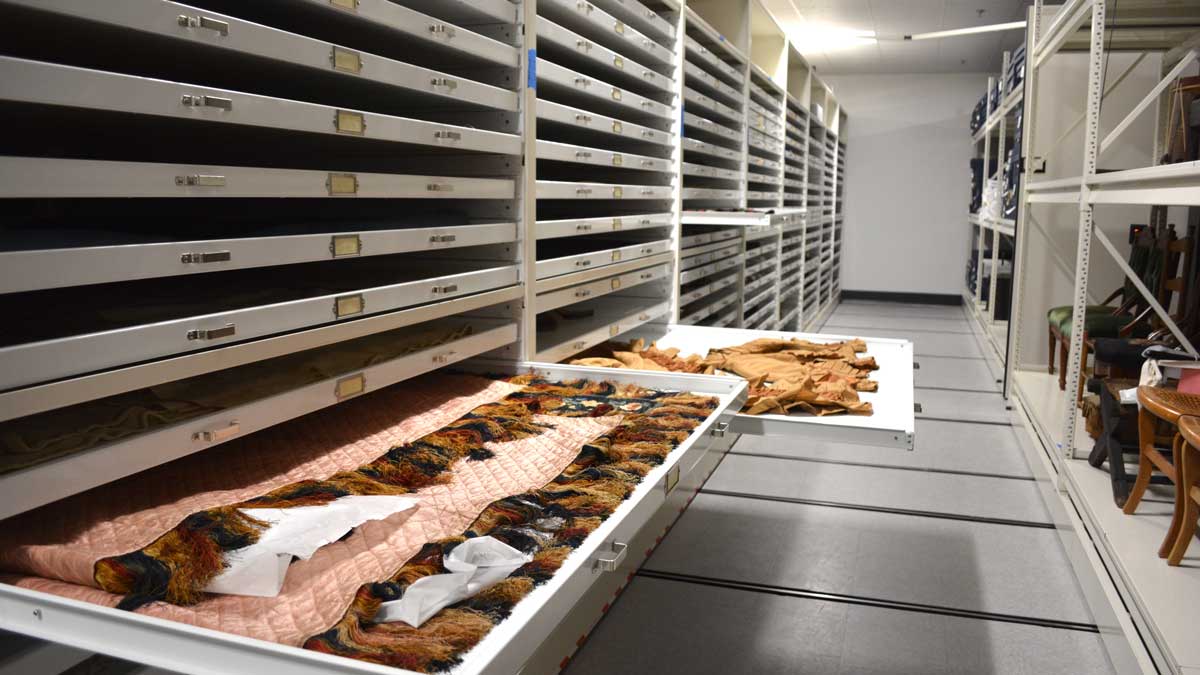
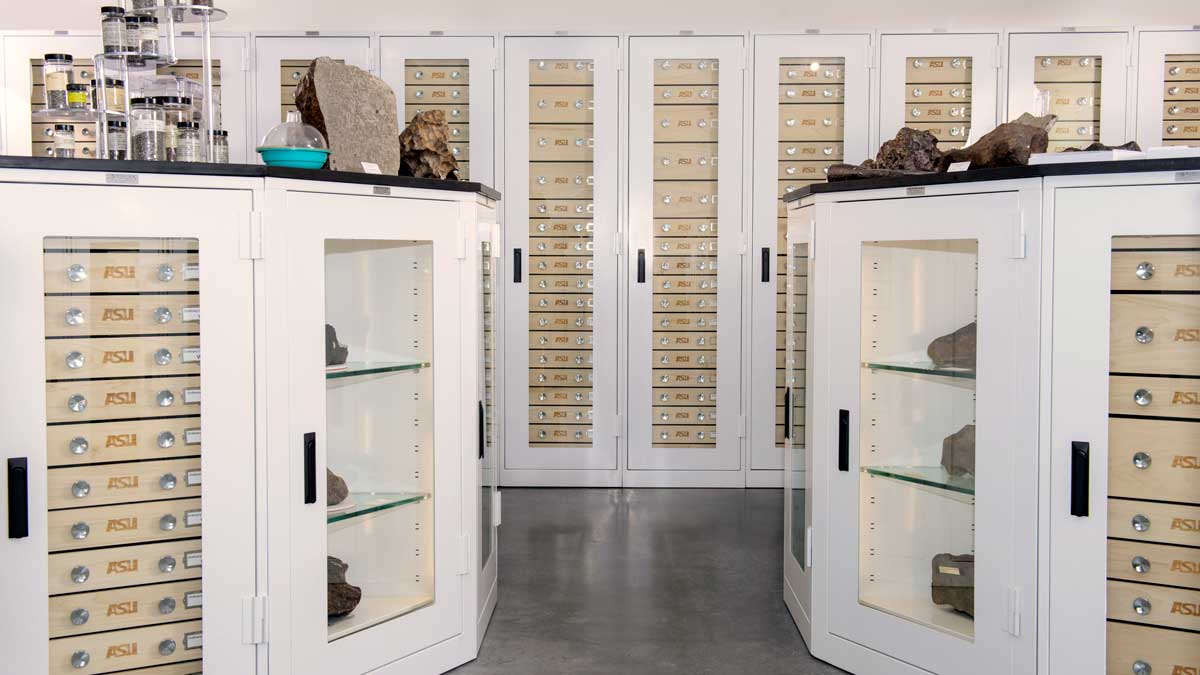
Maximize Storage Capacity With Museum Storage Cabinets
As museum collections grow, traditional shelving can’t keep up. Museum storage cabinets condense stored items into smaller footprints using vertical space and enclosed drawers. Most institutions gain 30 to 50% more capacity within the same square footage by converting from open shelving to cabinet systems.
Museum Cabinets for Storage:
- High-density layouts save 30–50% of floor space
- Uses full height and depth of cabinet footprint
- Stackable or mobile options available
- Efficient inventory organization and labeling
- Fits archival boxes, trays, or loose objects
Frequently Asked Questions
Museum cabinets are designed with conservation-grade construction to protect collections from dust, humidity, and light exposure. These museum cabinets meet preservation requirements for artifacts, specimens, textiles, paper items, and other sensitive materials.
Yes, museum cabinets can include LED lighting and air extraction systems to support conservation conditions. These specialized features help protect artifacts stored inside museum cabinets while improving visibility for inspection and display.
Yes, museum cabinets can include solid doors for maximum protection or glass doors for visibility. Both options allow museum cabinets to support a range of curatorial and display needs.
Yes, museum cabinets use non off gassing, conservation-safe powder coat finishes. These finishes meet museum-grade standards for chemical stability and are approved by institutions such as the Smithsonian and NARA.
Museum storage cabinets can store a wide range of items including textiles, artwork, documents, fossils, tools, uniforms, and natural specimens. Cabinet interiors can be customized to fit collection-specific needs like flat files for paper, trays for insects, or reinforced drawers for geological samples.
Museum storage cabinets can store a wide range of items including textiles, artwork, documents, fossils, tools, uniforms, and natural specimens. Cabinet interiors can be customized to fit collection-specific needs like flat files for paper, trays for insects, or reinforced drawers for geological samples.
Yes. Adjustable shelving, removable trays, and modular interiors allow staff to reconfigure the layout as the collection expands or changes. This flexibility helps museums make the most of limited space over time.
Museum cabinets are available for paintings, entomology collections, herbariums, geology collections, rolled textiles, works on paper, and framed artifacts. Specialized drawers and compartments allow museum cabinets to store a wide variety of specimen types.
Yes, museum cabinets can be mounted on compact shelving or mobile carriage systems. This allows museum cabinets to maximize storage density and free up valuable floor space in archives and collection storage rooms.
Yes, museum cabinets can include removable doors for easier access and can also be equipped with heavy duty casters for mobility. These flexible museum cabinet features support reorganizing, cleaning, and transporting collections safely.
Yes, museum cabinets can accept standardized entomology drawers including Cornell, Smithsonian, California, and USNM drawers. This compatibility makes museum cabinets ideal for housing professional entomological collections.
Yes. Cabinets provide full enclosure, protect from contaminants, and improve storage density by eliminating wasted space between items. Most institutions gain 30 to 50 percent more capacity compared to standard shelving.
Museum-grade cabinets are built to meet preservation standards set by institutions like the AIC and SPNHC. They use powder-coated steel, sealed drawers, and inert construction materials for compliance with archival best practices.
Honest Results
Southwest Solutions Near You
With 7 offices in Texas, Oklahoma, Kansas and Colorado, plus teams covering every major metro area nationwide, Southwest Solutions Group delivers expert museum cabinet sales, design, installation, and maintenance support wherever you need it.
Museum Cabinets Service Areas
Texas
- Austin
- Dallas
- El Paso
- Fort Worth
- Houston
- San Antonio
Oklahoma
- Broken Arrow
- Edmond
- Lawton
- Norman
- Oklahoma City
- Tulsa
Kansas
- Kansas City
- Lawrence
- Olathe
- Overland Park
- Topeka
- Wichita
Colorado
- Aurora
- Colorado Springs
- Denver
- Fort Collins
- Lakewood
- Boulder
Alaska
- Anchorage
- Fairbanks
- Juneau
- Wasilla
- Sitka
- Ketchikan
Arkansas
- Little Rock
- Fayetteville
- Fort Smith
- Springdale
- Jonesboro
- Rogers
Idaho
- Boise
- Meridian
- Nampa
- Caldwell
- Idaho Falls
- Pocatello
Louisiana
- New Orleans
- Baton Rouge
- Shreveport
- Metairie
- Lafayette
- Lake Charles
Missouri
- Kansas City
- St. Louis
- Springfield
- Columbia
- Independence
- Lee's Summit
Montana
- Billings
- Missoula
- Great Falls
- Bozeman
- Butte
- Helena
New Mexico
- Albuquerque
- Las Cruces
- Rio Rancho
- Santa Fe
- Roswell
- Farmington
Washington
- Seattle
- Spokane
- Tacoma
- Vancouver
- Bellevue
- Kent
West Virginia
- Charleston
- Huntington
- Morgantown
- Parkersburg
- Wheeling
- Martinsburg
Wyoming
- Cheyenne
- Casper
- Gillette
- Laramie
- Rock Springs
- Sheridan
Alabama
- Huntsville
- Birmingham
- Montgomery
- Mobile
- Tuscaloosa
- Hoover
Arizona
- Phoenix
- Tucson
- Mesa
- Chandler
- Gilbert
- Glendale
California
- Los Angeles
- San Diego
- San Jose
- San Francisco
- Fresno
- Sacramento
Connecticut
- Bridgeport
- New Haven
- Stamford
- Hartford
- Waterbury
- Norwalk
Delaware
- Wilmington
- Dover
- Newark
- Middletown
- Smyrna
- Milford
Florida
- Jacksonville
- Miami
- Tampa
- Orlando
- St. Petersburg
- Hialeah
Georgia
- Atlanta
- Augusta
- Columbus
- Macon
- Savannah
- Athens
Hawaii
- Honolulu
- East Honolulu
- Hilo
- Pearl City
- Kailua
- Waipahu
Illinois
- Chicago
- Aurora
- Naperville
- Joliet
- Rockford
- Springfield
Indiana
- Indianapolis
- Fort Wayne
- Evansville
- South Bend
- Fishers
- Carmel
Iowa
- Des Moines
- Cedar Rapids
- Davenport
- Sioux City
- Iowa City
- Waterloo
Kentucky
- Louisville
- Lexington
- Bowling Green
- Owensboro
- Covington
- Richmond
Maine
- Portland
- Lewiston
- Bangor
- South Portland
- Auburn
- Biddeford
Maryland
- Baltimore
- Frederick
- Rockville
- Gaithersburg
- Bowie
- Hagerstown
Massachusetts
- Boston
- Worcester
- Springfield
- Cambridge
- Lowell
- Brockton
Michigan
- Detroit
- Grand Rapids
- Warren
- Sterling Heights
- Ann Arbor
- Lansing
Minnesota
- Minneapolis
- St. Paul
- Rochester
- Bloomington
- Duluth
- Brooklyn Park
Mississippi
- Jackson
- Gulfport
- Southaven
- Hattiesburg
- Biloxi
- Olive Branch
Nebraska
- Omaha
- Lincoln
- Bellevue
- Grand Island
- Kearney
- Fremont
Nevada
- Las Vegas
- Henderson
- Reno
- North Las Vegas
- Sparks
- Carson City
New Hampshire
- Manchester
- Nashua
- Concord
- Dover
- Rochester
- Keene
New Jersey
- Newark
- Jersey City
- Paterson
- Elizabeth
- Edison
- Woodbridge
New York
- New York City
- Buffalo
- Rochester
- Yonkers
- Syracuse
- Albany
North Carolina
- Charlotte
- Raleigh
- Greensboro
- Durham
- Winston-Salem
- Fayetteville
North Dakota
- Fargo
- Bismarck
- Grand Forks
- Minot
- West Fargo
- Williston
Ohio
- Columbus
- Cleveland
- Cincinnati
- Toledo
- Akron
- Dayton
Oregon
- Portland
- Salem
- Eugene
- Gresham
- Hillsboro
- Beaverton
Pennsylvania
- Philadelphia
- Pittsburgh
- Allentown
- Reading
- Erie
- Scranton
Rhode Island
- Providence
- Cranston
- Warwick
- Pawtucket
- East Providence
- Woonsocket
South Carolina
- Charleston
- Columbia
- North Charleston
- Mount Pleasant
- Rock Hill
- Greenville
South Dakota
- Sioux Falls
- Rapid City
- Aberdeen
- Brookings
- Watertown
- Mitchell
Tennessee
- Nashville
- Memphis
- Knoxville
- Chattanooga
- Murfreesboro
- Clarksville
Utah
- Salt Lake City
- West Valley City
- West Jordan
- Provo
- St. George
- Orem
Vermont
- Burlington
- South Burlington
- Rutland
- Essex Junction
- Bennington
- Brattleboro
Virginia
- Virginia Beach
- Norfolk
- Chesapeake
- Richmond
- Newport News
- Alexandria
Wisconsin
- Milwaukee
- Madison
- Green Bay
- Kenosha
- Racine
- Appleton
Gallery
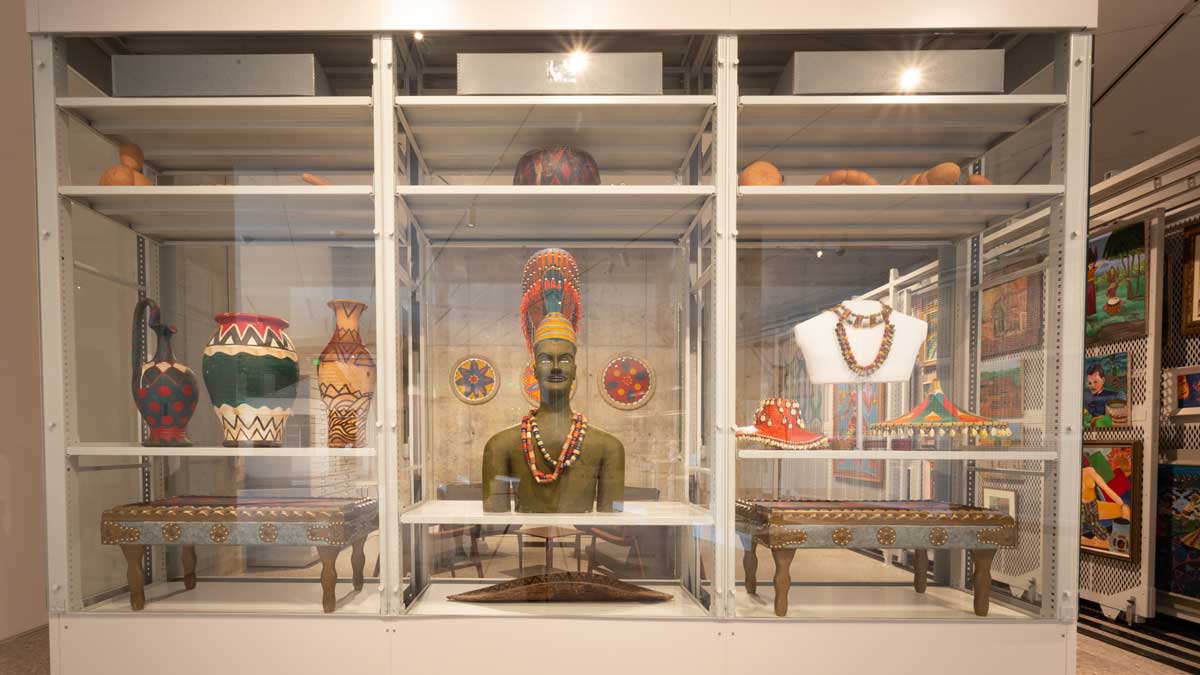
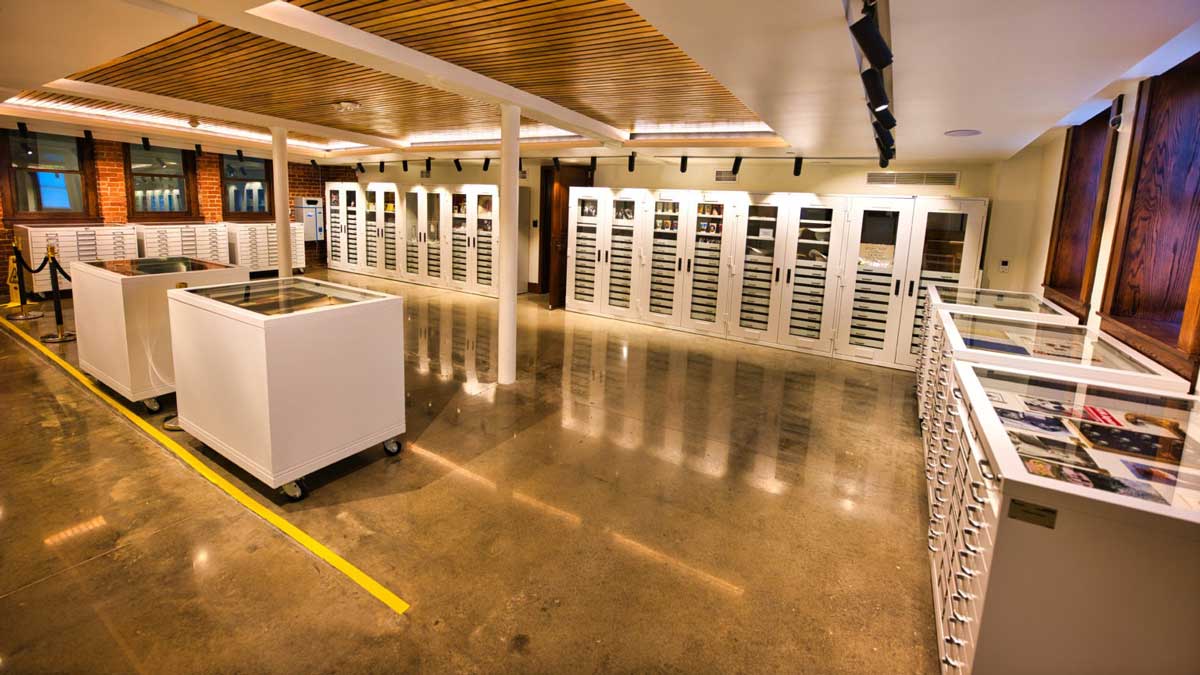
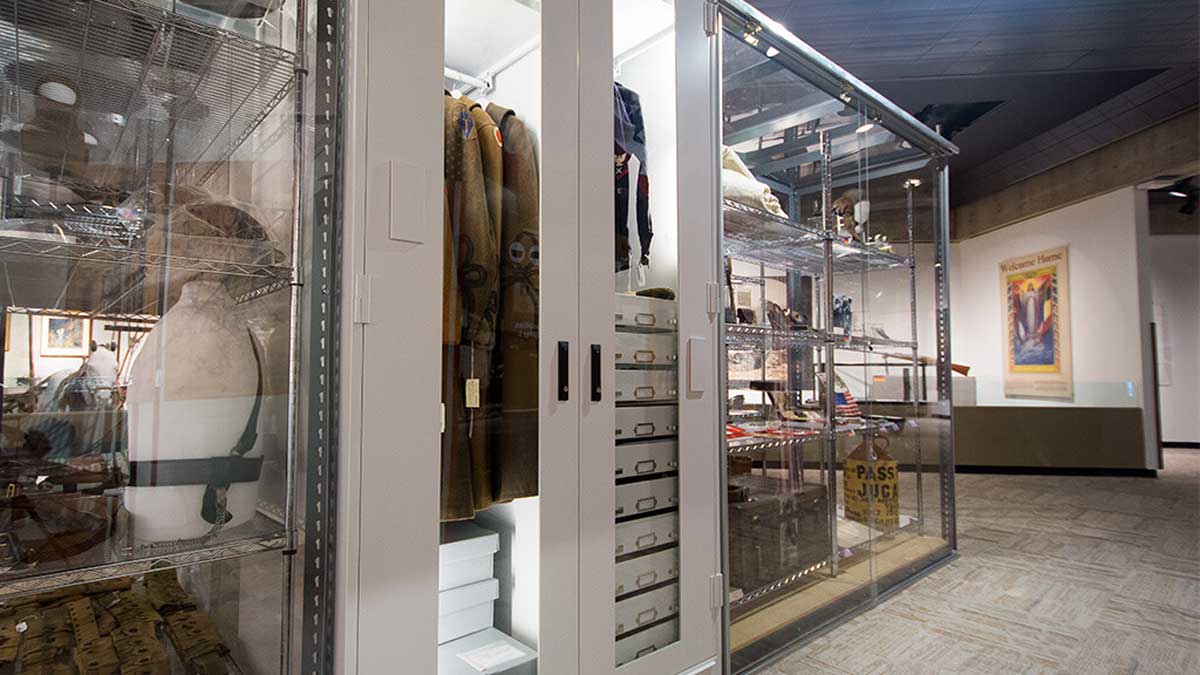
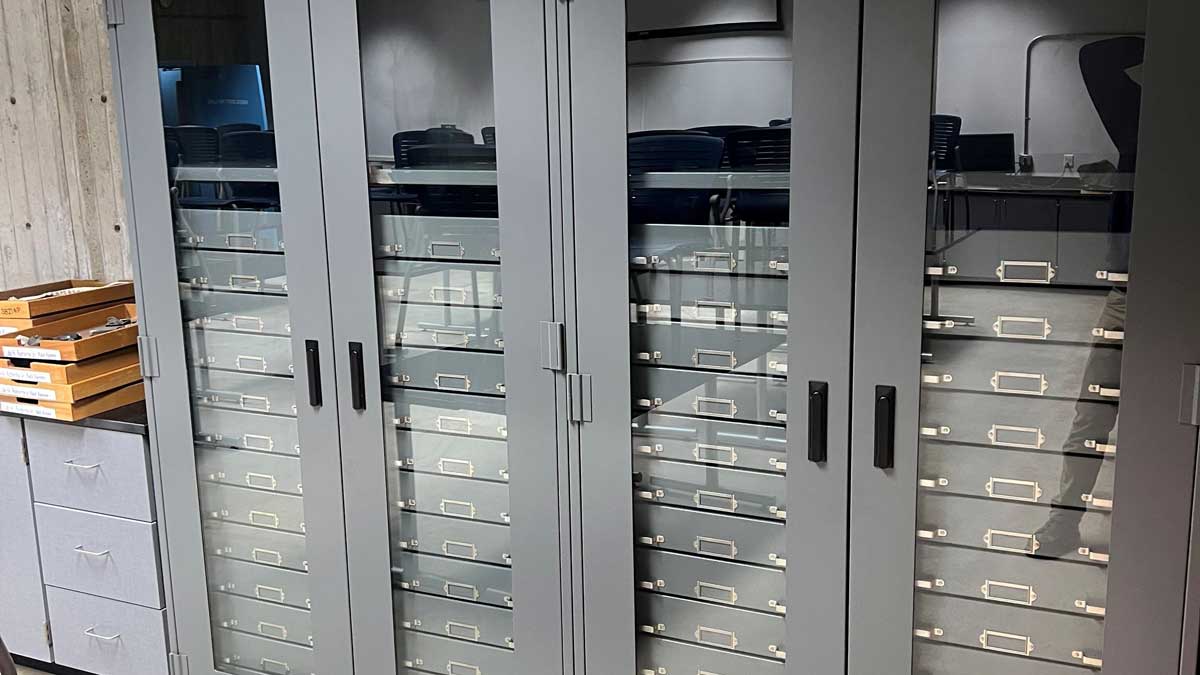
Explore Our Secure Cabinets
Protect Collections with Museum-Grade Storage Cabinets
Preserving collections requires more than just shelving. Museum storage cabinets provide the protection, organization, and adaptability that institutions need to support long-term conservation.
Whether you're building a new archive, retrofitting an existing storage area, or expanding your collection, Southwest Solutions Group will help you plan and implement a system that fits your space and preservation goals.
Call us at (800) 803-1083 or Contact Us to schedule your free consultation today.
REQUEST A FREE CONSULTATION
